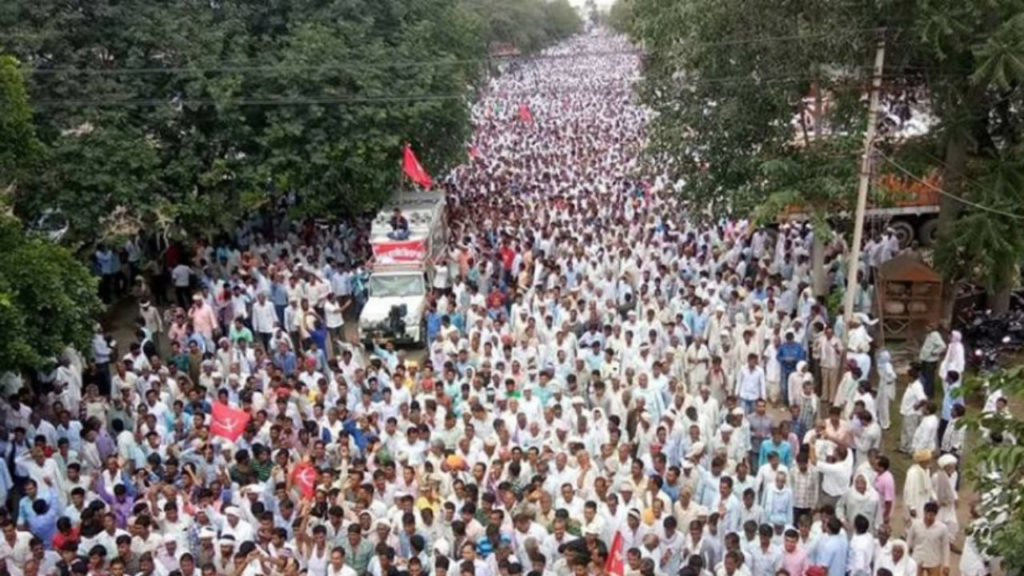“Muddled Messaging and Chinese Whispers” – A Teenager’s Take On Farmer’s Protest Over New Laws

Disclaimer: This is a Guest Post by a teenager, who wished to express his views and opinions on the farmers’ protest.
The call for a nationwide ‘Bharat Bandh’ on the 8th of December came after a series of protests and demonstrations led by farmers. These protests came in response to three bills that were passed in the Indian Parliament by the BJP led government in September. Since then, people have been divided into two groups: the ardent supporters and the unrelenting opposers.
The ideological conflict between the two sides is of agricultural liberalisation and that of top- down government control. The move to liberalize agriculture has been welcomed by many economists and financial experts claiming that it will eventually be beneficial for agriculture in the long term because the farmer is now free to sell his produce independently, rather than being under the control of an APMC Mandi. Critics however, claim that these laws will result in the exploitation of farmers by private organisations.
In this day and age, the fact that information is available so readily makes it difficult to understand what is beneficial for the farmers and what isn’t. Frankly speaking, it would be an understatement to say that the general audience is divided on the issue of the farm laws. Every other day, on social media, there is a new trend related to either the laws or the protests. Politicians, bloggers, celebrities and influencers share information (often biased and not always verified) to their massive audience about the laws, presumably to sway their opinion one way or the other. This makes it very easy for the average individual, who wouldn’t bother to verify information, to get carried away. The opinions given out by these public figures is relayed from platform to platform which often leads to misinterpretation and misinformation. This kind of muddled messaging and the apparent game of Chinese Whispers can be interpreted to be harmful in shaping the mindsets of people towards the laws or the government.
Furthermore, the propagation of fake news and morphed images can add fuel to the fire. As I write this article, an image showing a supposed tweet by Barack Obama has been deemed to be fake by numerous fact-checking websites after it was circulated on various mass media. This is an example of how unverified information can be used to deceive people.
It would be a fair estimation to make that large scale misinformation could be spread about other government schemes and legislations. A good example of which, is the misconceptions around the Citizenship Amendment Act. Protesters and the general public claimed the laws to be anti-constitutional, violating Article 14 and being against the spirit of India. However, senior lawyers such as Harish Salve and J Sai Deepak have debunked these claims.
One of the most problematic phenomena that has surfaced in the past few years is the interpretation of a law, amendment or a legislation as being an “anti” or a “pro”. The idea that a scheme introduced by the government will only benefit one section of the society, ignoring the others is really doing more harm than good. This form of thinking will eventually lead to the criticism of every law that aims to help a disadvantaged section of the society or benefit an entire sector as a whole. The glorification of the farmer protests seems to be the result of such narrow mindedness. A majority of left leaning people have deemed these laws to be anti-farmer, but what they ignore is that this law will actually benefit the silent majority of farmers who aren’t involved in the protests. This further leads to fear-mongering by exaggeration of the current situation often backed by political interests.
Amidst all the discussion and debate, what should really concern the Indian citizen is the over-reliance on sources that are often biased. Statements by politicians, and popular influencers should cease to be considered as references. It is extremely important that an Indian must have his own mind and be willing to dive deep into a seemingly controversial topic rather than falling prey to biased, political propaganda.
About The Author:
Varun Shastry is a college student, a keen problem solver and a politics geek. A debate lover by nature, Varun is always getting involved in heated arguments about politics, sociology and current affairs. His passion for debating has led him to take part in various Mock United Nation conferences. He is also a major enthusiast of science, coding and game development. In his free time, you can find him gaming, binging on his favourite anime or watching cricket.

Comments are closed, but trackbacks and pingbacks are open.